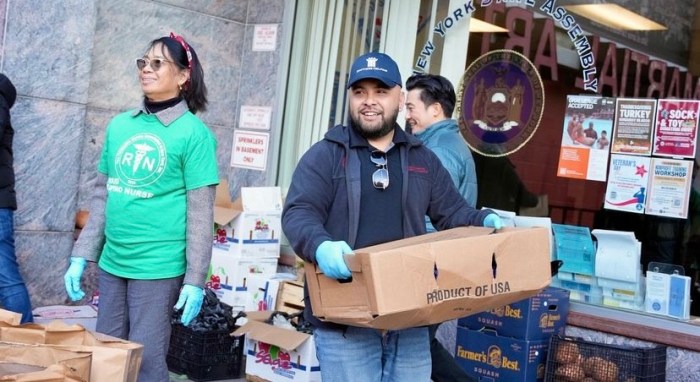One Queens community is going "green" to be clean.
Over 100 volunteers gathered in November 2009 to find ways to reduce congestion, garbage, and increase their communities’ recreational space. Their numbers have grown to over 400 residents who seek the opinions of the Jackson Heights community on pressing environmental problems in the overcrowded district.
“We designed a system for gathering input,” said Anna Dioguardi, director of Community Organizing and Development at the Queens Community House, “that not only asked residents to come out to large visioning sessions but also incorporated ‘portable’ workshops that traveled to groups where they already gather, meet and worship.”
The “Green Agenda,” an initiative of the Jackson Heights Green Alliance, Jackson Heights Beautification Center, The Pratt Center for Community Development and others, has worked with community groups, religious institutions and organizations, to tackle these environmental issues.
The meetings, held in the three languages spoken by the majority of the area’s population English, Spanish and Bengali, generated a 40-page agenda for Jackson Heights, released on May 22, which outlined the short and long-term goals and recommendations for making the Heights a more people-friendly area.
The goal is to create a greener, cleaner, more environmentally and economically-friendly neighborhood.
The agenda made it clear that some of the goals are easily achievable and require little or no funding, like educating the community about recycling. Others, like acquiring land for new parks and playgrounds, will take a lot more time and money.
“We talked about how there was a schism in the neighborhood between renters who had limited access to green space and people who lived in the co-ops with gardens in their yards,” said Meryl Branch-McTiernan, a former resident of the neighborhood. “Besides the conflicts associated with having disparate resources, there wasn’t a meeting ground for people to mingle.”
Jackson Heights has been rezoned to accommodate over a million new residents in the last 20 years, but no arrangements for sufficient recreational space have been made.
Now that a plan exists, the challenge becomes achieving the outlined goals in a timely and economically feasible manner.
The biggest challenge was “bringing groups together and getting them to talk,” Dioguardi said because the Jackson Heights community is diverse in terms of ethnic, racial, economic and social status. According to her, it takes work to build a bridge between the people and make them comfortable to express their opinion. Dioguardi also believes that new immigrants need help coming on board with the issues and joining the rest of the community in the effort.
For the “Green Agenda,” the next big step will be to close 78th Street full-time during the months of July and August to convert it to a “Play Street,” a big step forward from the current Sunday closure arrangement.
The action plan names a broad range of issues that are yet to be addressed and many want their own issues to be solved first, but the coalition said the Agenda has given the community a start.


































